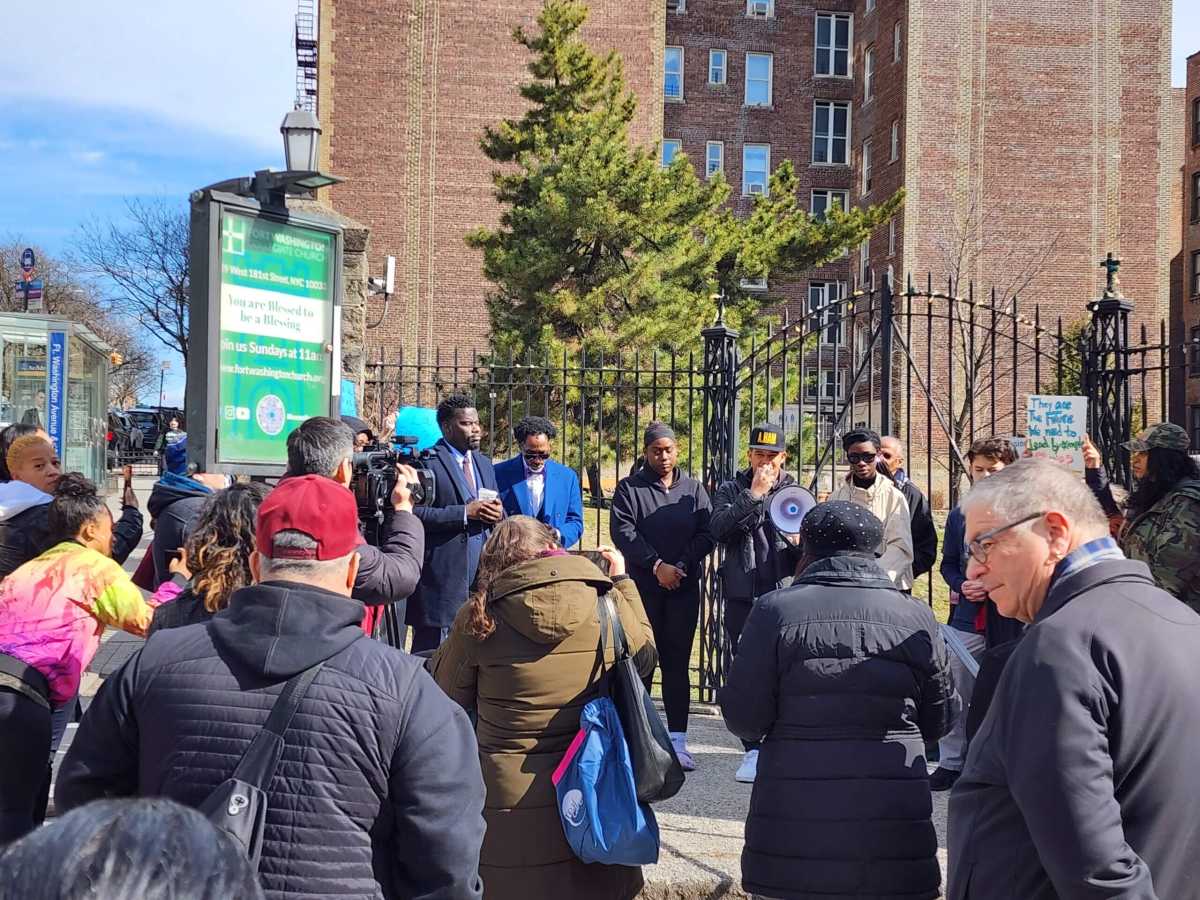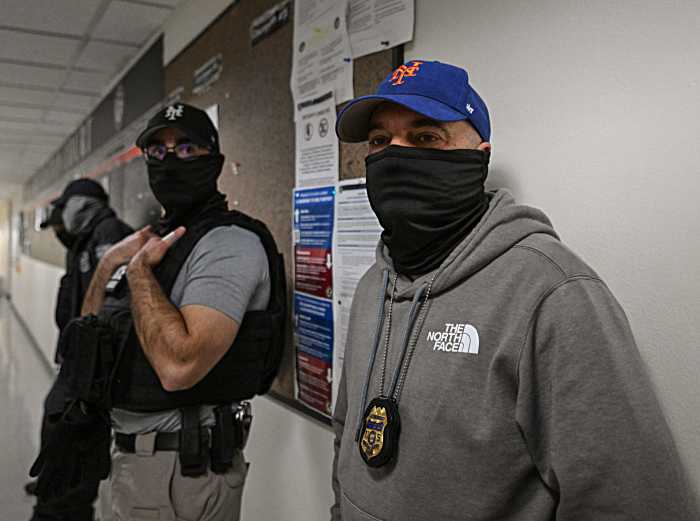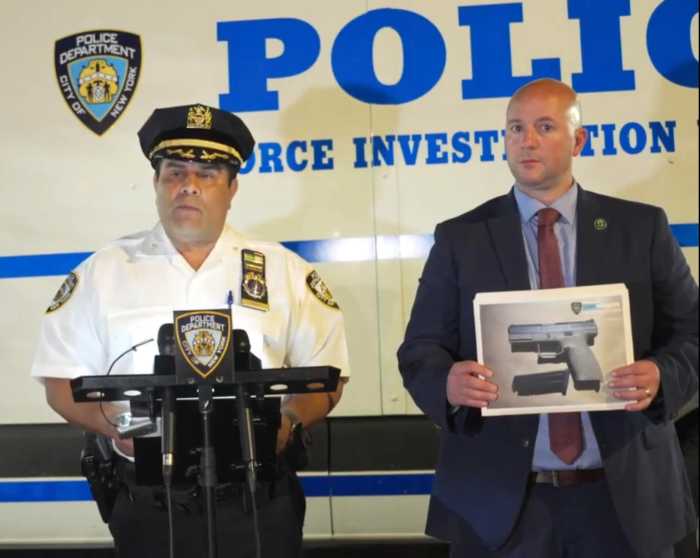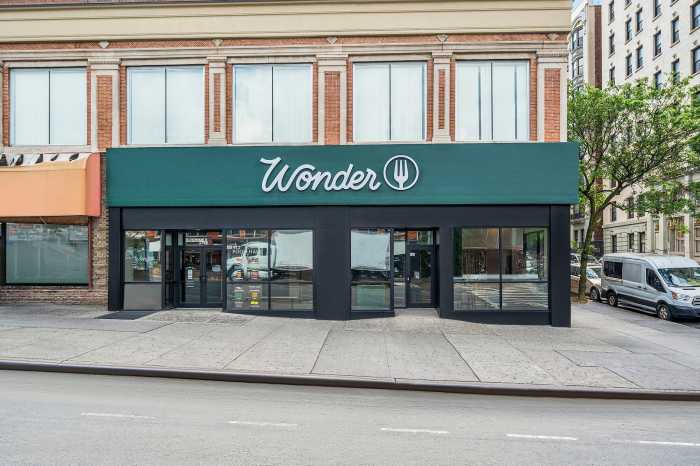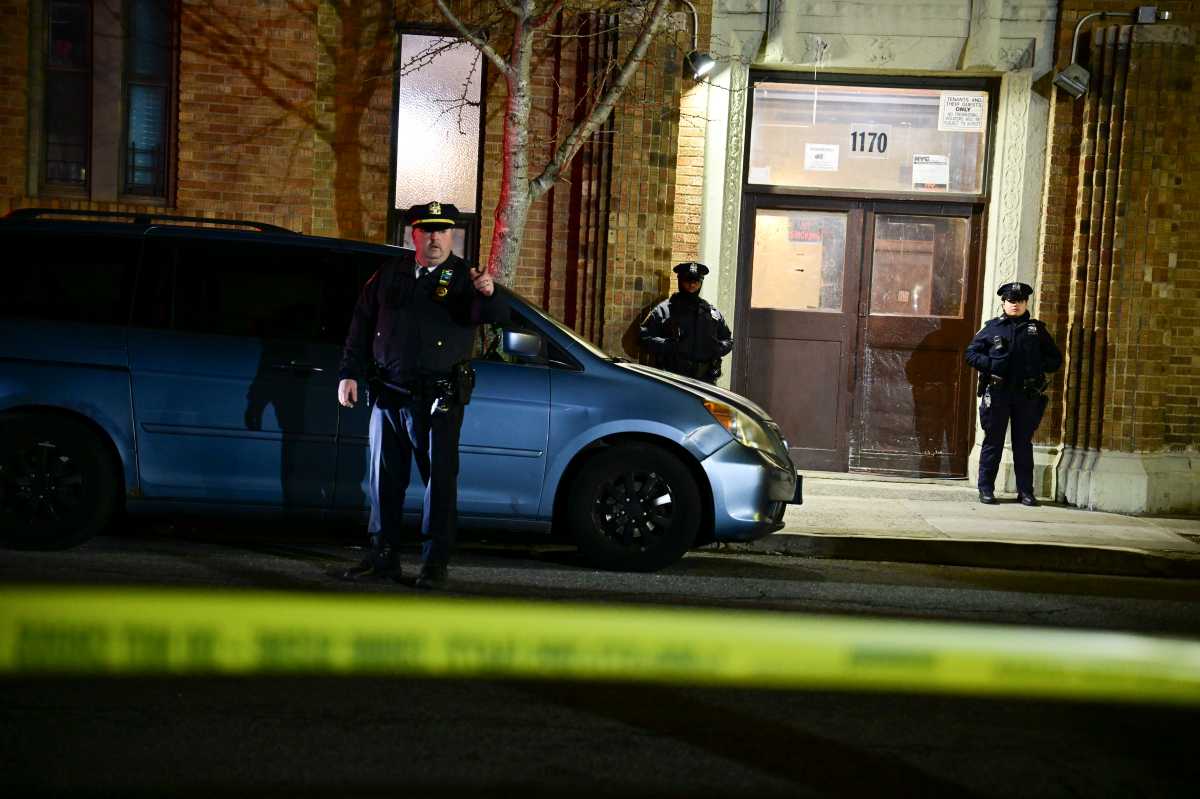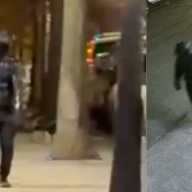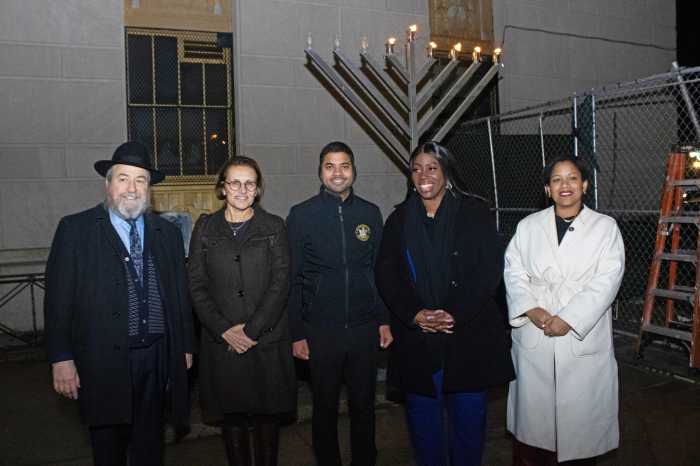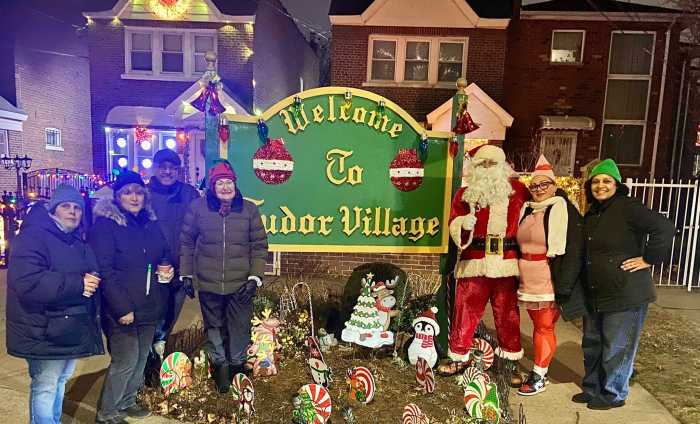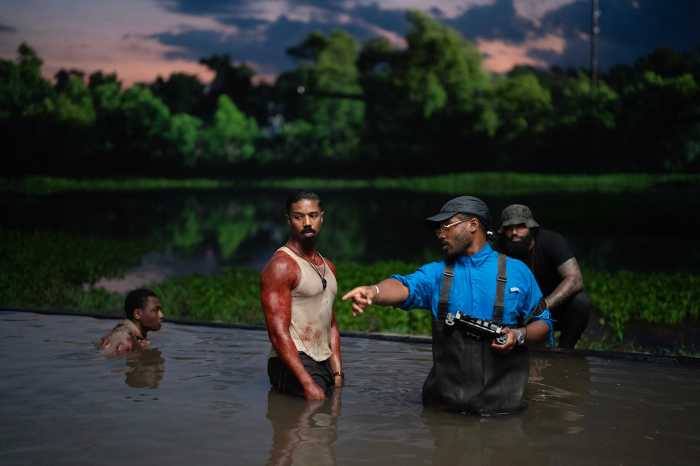Three students from the High School for Media and Communications, who became frustrated with violence after watching a video of a recent attack near their school, decided to form a new social justice organization to respond to hate and racism in and around uptown Manhattan schools.
Uptown Youth Power, which they named their group, held its first rally in Washington Heights this past Saturday, March 18.
The students opted to rally near the A train station on West 181st Street and Fort Washington Avenue, where a 15-year-old boy with autism was recently beaten by three teenagers and called anti-Black slurs. The event followed another rally organized by Upper Manhattan residents that called for more anti-violence prevention programs for youth.
Alongside their parents, elected officials, and community leaders, the founding members, Sebanyah Buckmire, Juan A. Hererra, and Kei-seanna Hines-Pugh, announced their demands to Mayor Eric Adams and New York City Schools Chancellor David Banks at the rally. After watching bystander videos of the autistic student being attacked, the students said they felt angry, confused, and disgusted by the teenage and adult bystanders who either just filmed or watched.
“When we found out on the news and the video spreading through social media, we were ashamed and angry towards how everybody treated this,” said Herrera.
Hines-Pugh said because the attack happened just down the block from High School for Media and Communications, the perception of danger felt more personal. Hines-Pugh said seeing adults not intervening made the incident “more disgusting and more shameful” and that “students shouldn’t be scared to go home or be afraid that they’re going to get attacked on public transportation.”
The students believe bullying and mental health in uptown Manhattan schools do not get as much attention as other areas of the city. Their demands include policies that address anti-blackness, hate, homelessness, and mental health among students: safe, inclusive spaces that give dignity to all students; more counselors; culturally-responsive education; and restorative justice circles and conflict resolution skills for students.
Buckmire felt that there needs to be more restorative justice programs in place at schools because there are “students in some of the schools in this area discriminating against each other.”
Several schools were recently in lockdown following shootings near the campuses in the Upper West Side and East Harlem. Wanda Perez, Hererra’s mother, vocalized her fears at the rally about raising a child in what feels like a dangerous environment.
“What is the plan of action to make sure that our kids in District 6 feel safe and that us, as parents, don’t have to go to either a precinct to pick up our kids, the hospital because they got hurt, or even worse, that we have to plan a funeral for them?” Perez said.
Both Hererra and Hines-Pugh also expressed their concerns about drug use and smoke shops in and around schools.
“We had an incident in our school regarding edibles laced with fentanyl,” Hererra said. “Some kids had to go to the hospital.”
“Just being able to just go out and buy the vape is an issue because there’s many vape stores and smoke shops in the school zone,” Hines-Pugh said.
The students were joined by State Senator Robert Jackson, First Deputy Public Advocate Nick Smith, executive director of Alliance for Quality Education Jasmine Gripper, Dr. Kaliris Salas-Ramirez, who is the Manhattan Borough Appointee on the Panel for Education Policy.
“Our youth are uniquely positioned to offer demands and solutions in the fight against acts of violence and discrimination,” Jackson said in a statement. “I commend the bravery of these young students for taking a leadership role in forming the Uptown Youth Power movement.”
Uptown Youth Power is now building their coalition and extended an invitation to students and parents in Uptown Manhattan and across the city to join. The founding members are now demanding a meeting with both the mayor and schools chancellor — with whom they have never engaged with — to further discuss their demands and express their feelings about safety and racial justice.
“It’s not fair for children and youth to be afraid to leave their houses,” Hines-Pugh said. “Until things change, and things get better, we will not stop speaking out about what’s happening.”
Read more: NYC Charter Schools: Key Facts on Quality Education and Achievement



